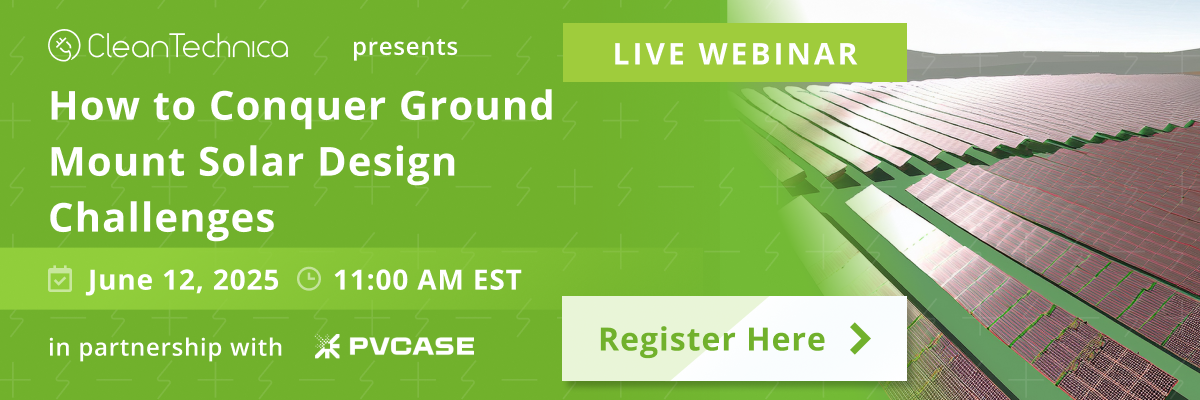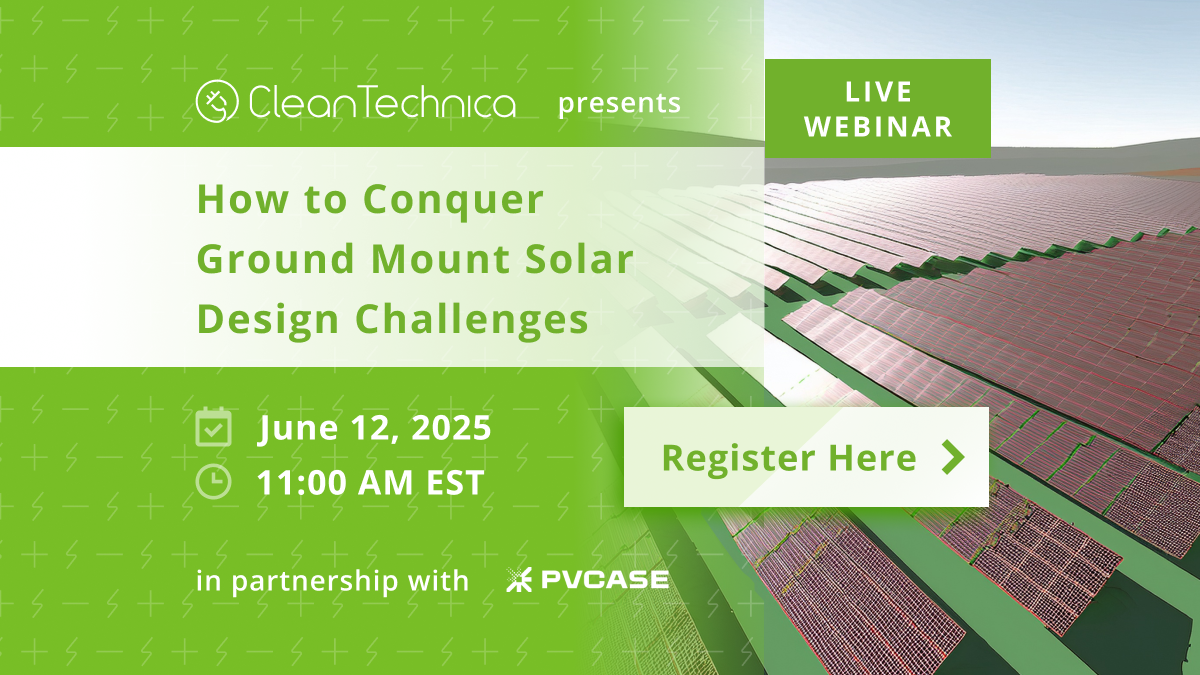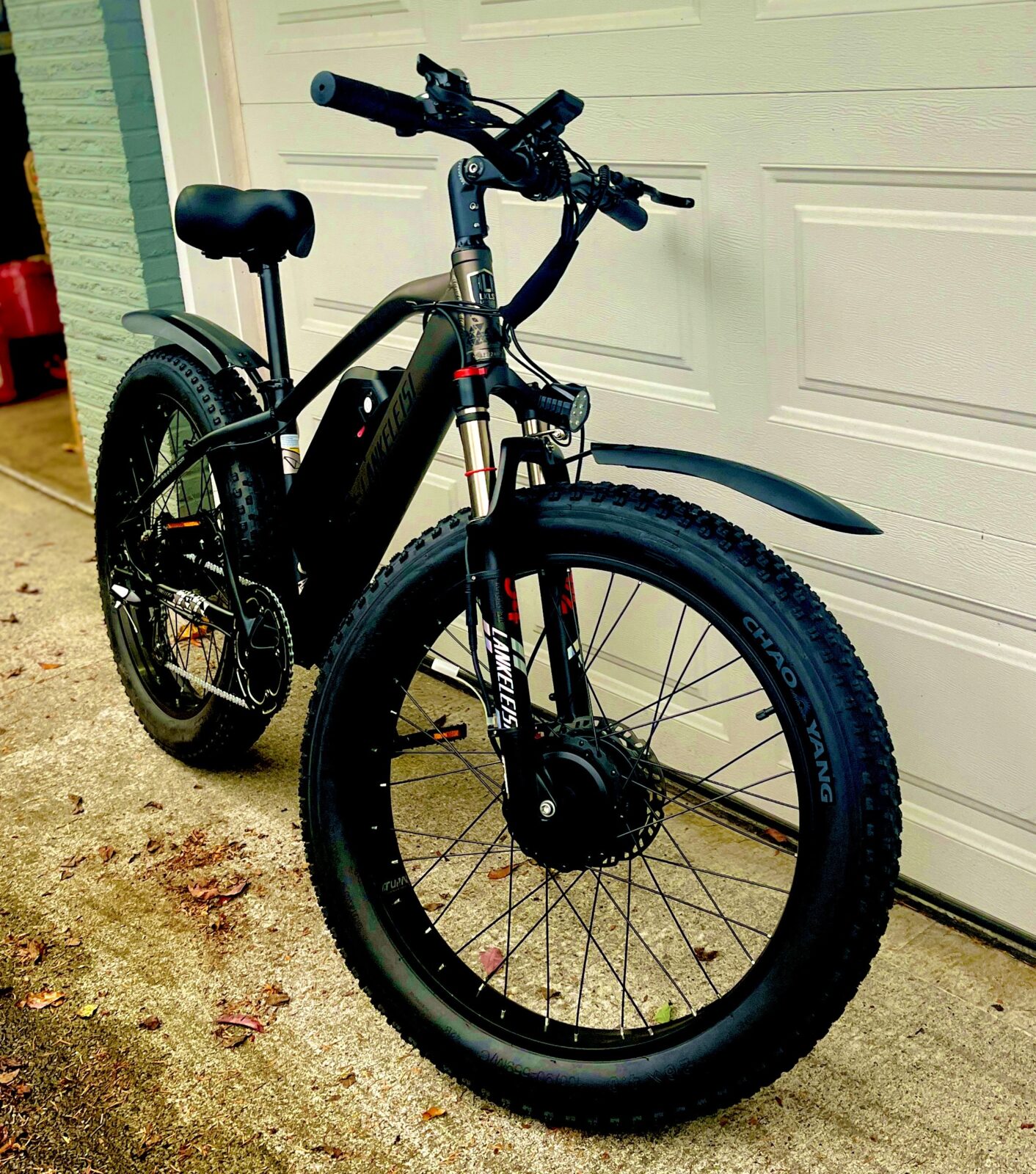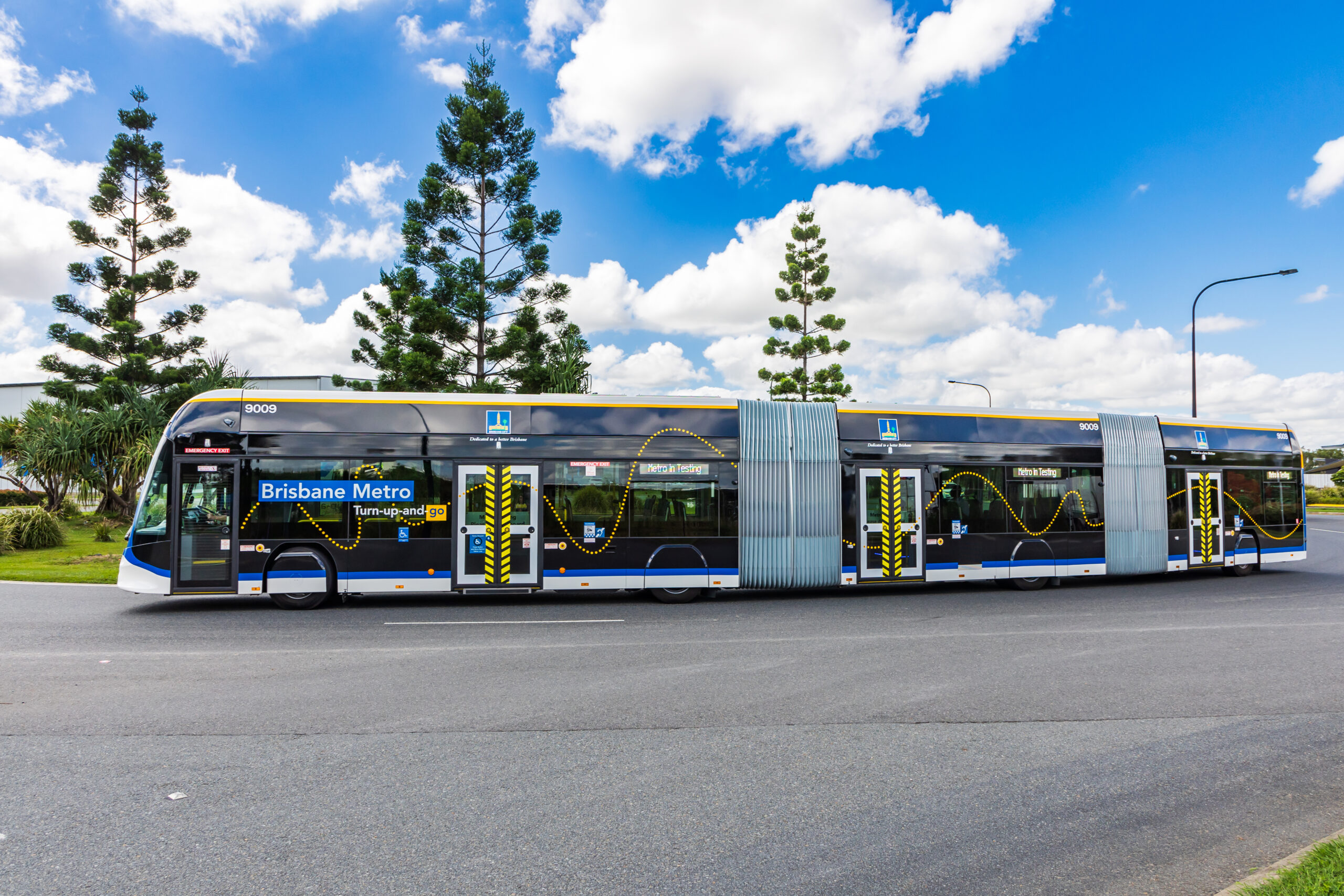The following is an excerpt from an upcoming book that will be published by CleanTechnica…. Sign up for our Substack to be notified when it’s out!
Something’s always bugged me about the movie Saving Private Ryan. I was finally able to put my finger on it as I sat down to write this book. If you haven’t seen the movie and want to do so before I spoil the ending here in a moment, it’s excellent, so go ahead. I’ll wait.
Welcome back. It was so good, right? Won a bunch of awards.
Maybe you see what bothered me now, since you’ve picked up this book, and presumably your head is in the space for these types of ideas. At the end of the movie, Mister Ryan is visiting a gravesite, walking among thousands of white crosses placed for the World War 2 deceased, including, presumably, several of those who gave the ultimate sacrifice to help bring him home alive.
He’s in tears, and asks his family if he’d done enough to deserve the sacrifice. They of course comfort him in a Hollywood kinda way, adding a happy-ish ending to an otherwise pretty f**ked up (but again, excellent) movie.
So, what, exactly, did he do to “deserve the sacrifice”? The script leaves that part off, I imagine since it’s a very challenging thing to spell out an ending that would leave all movie-goers feeling the happy ending vibes.
What was his legacy? He’d obviously spent time building a family, as he was surrounded by several generations as he walked around the graveyard. It seemed like, however, that wasn’t enough for him at the time to not question whether he’d done enough, as his tears flowed and a very understandable guilt was clearly present.
It made me wonder if he felt that those who sacrificed for him might’ve hoped he would maybe do … I don’t know … something truly special?
Did he save a bunch of lives or invent something that makes humanity progress toward a golden age, or work to promote peace around the world to avoid more World Wars? It’s a lot of pressure to put on yourself, and I’m sure I would have felt very similar to Mister Ryan walking around that gravesite.
But it made me think. My parents sacrificed everything for me. My Aunt, Uncle, Grandpa, Grandma … so many people made so many sacrifices, putting my life ahead of theirs. I was born in a time when women didn’t really have an option not to have kids, and I’ve always wondered how many parents of that era secretly regretted it, or hoped that their children would do … something truly special.
Those who did sacrifice for me would stumble over themselves to say, “no, not at all,” that they’d do it again in a heartbeat. But, at my core, I know they kind of “have” to say that. Parents and other family members who express any sort of regret about sacrificing their own needs or wants when having and raising children are stigmatized beyond belief, and feel a tremendous amount of guilt that they’ll leave that child feeling unloved. It’s just a conversation we can’t have yet as a society.
I recognize that, on a much smaller level, I carry similar guilt that Mister Ryan did. For those who sacrificed what they really wanted to do to make me able to live a full life, have I done “enough”?
That guilt I carry is at least partially why I do the work that I do. I’ve spent my entire adult life working to make the world a better place. I do it not just to answer this guilt, of course, it’s my purpose. It has given me a beautiful and fulfilling life, introduced me to some great humans, and filled me with meaning and joy. It has also resulted in some pretty intense burnout. And that brings us to this book.
To say that I’m bought in to the purpose I’ve found is an understatement. I’ve bought the farm. I am deep in the soil. I gave my first talk about the environment decades ago, at the tender age of 17, in front of my entire school at our K-12 auditorium. My teachers knew I had a passion and wanted to foster it, and gave me the podium (literally and figuratively) to present some ideas. So there I was, in 1992, giving a talk about the dangers of the industrial food system for our planet and our health, to an auditorium full of students from a mostly rural community in the south, with many of their families’ livelihoods tied to factory farms in the area. Talk about reading the room. LOL. What can I say except that that was a tool I didn’t have in my toolkit at the time.
I went through the cycle of environmentalism earlier than many. I learned, went down some rabbit holes, got angry, then sad, consuming gloomy and doomy content as I went. I was mostly feeling despair, with the occasional glimmers of hope.
I’ve always been a bit of an optimist and a “yes we can” kind of guy. Many might describe young me as “naïve”, rather than this optimist I want to think of myself as. I know it’s a bit of a fine line, but the bottom line is that I have never stayed in these despair cycles long, and that has kept me in the game.
I found my groove early. “Think globally and act locally” resonated with me, and I found a lot of satisfaction in making something (anything) better within my sphere of influence. I believe it’s one of the most effective strategies to avoid burnout for any activist, but as it turned out, that by itself was simply not enough.
After a 25+ year career in which I’d built several eco-themed companies from the ground up (4 times as a solo founder), creating lots of green jobs and making truly measurable and positive impacts…
I still hit the wall. Hard.
I burned out so badly a few years ago that I remember sitting at my desk one day, staring at my computer screen, physically unable to discern words, or even lift my hand to the mouse.
It had been building for a while, but I thought I was dealing with it. I did all the usual coping strategies that usually help me. I exercised. I spent time with good friends. I took myself for walks in the middle of the day. I did a lot of yoga and meditation when I could find the time.
Entrepreneurship is grueling. It’s even hard to celebrate the wins, because there’s always something else that needs attention. Combine that with the existential threat of climate change, and my nervous system simply wasn’t getting any really in-depth rest and resets, which are really critical to long term mental health.
Despite the fact that one of my startups, CleanTechnica, was consistently a source of optimism and hope for many people, myself included, even that was no balm for the burnout I felt.
CleanTechnica has helped accelerate the cleantech revolution in a way I didn’t ever think would be within my sphere of influence. The number of our audience who have written in over the years telling us they were convinced by something we published and it made them do an energy efficiency retrofit of their office building, buy their first EV, put solar for their house or business, or — you name it — was evidence enough. We are moving markets.
One major investment firm even used some of our materials in an analysis, flipping their recommendation on Tesla stock from Sell to Buy. Tesla had been facing a lot of pressure from short sellers and hedge funds who can sometimes sink an otherwise perfectly good company because they stand to make a lot of money if it fails. That pressure hurt the company in many ways, and this seemingly small thing, a flipped recommendation and insightful analysis using our research, seemed to signal a shift. Many recognized this shift as a pivotal moment in the company’s history.
CleanTechnica was inspiring a lot of confidence in Tesla and other EV makers, and proved to many people and companies that electric vehicles — which get 4-5 times more miles per unit of energy consumed than gas cars and have literally 50% less environmental impact over their lifetimes — were here, and here to stay. It wasn’t just the financial analysis — many of our readers had bought Teslas because we were writing about them. Every EV that got purchased was a gas car that didn’t get purchased — and each one of those decisions meant tens of thousands of dollars shifting from oil to electricity (which can be made from many clean sources), shifting demand away from polluting fluids (EVs have no fluids to change except windshield washing fluid). This means a huge increase in efficiency.
Tesla’s stock price went on a tear, allowing the company more leverage with lenders, more powerful incentives for employees to stick around, and huge payoffs for many early investors who were hoping this company could change the world. Did we cause this single-handedly? No, of course not. But we moved something. Combined with a lot of other factors, I know it helped.
Elon Musk (I know, I know … this was before ….) started following us, and regularly reposted our content. We were helping move markets, and people were noticing. We hit a high water mark of 8 million readers a month at one point, and if you count up the number of those decisions like I discussed above — shifting current and future dollars away from fossil fuels and towards cleaner, more efficient energy systems — we were literally catalyzing a revolution toward technologies that can help fight climate change.
Yet, it still wasn’t enough to prevent me from burning out. To stay strong in this movement, to keep helping move society forward, I felt the need to be healthy, and mentally in balance. And I was nowhere close on either account. I had a cancer scare, and at times even felt my sanity slipping away. Some bad personal life stuff happened. The pressures mounted. I had some terrifying moments.
The really brutal thing was, I couldn’t just stop and take a mental health break. Entrepreneurs seldom have that luxury.
Mental health is still stigmatized, four years after I first went into this dark place, and back then it was even more so. I felt additional pressure being a man. In my opinion, society still doesn’t know what to do with men who show emotions and emotional “weakness” (but I feel that is changing, thankfully). I felt additional pressure being an entrepreneur and CEO — we always have to protrude an air of confidence. If we don’t, customers won’t buy, employees will start to look for other work, and the situation might get far, far worse. That pressure meant I thought I had to keep this burnout private, and certainly didn’t share with anyone at work, who made up a good chunk of my social relations, given just how much time we all spent together. Therapy wasn’t even an option. It was COVID times (on top of it all), and an election year, so there seemed to be literally no therapists available, in or out of my insurance plan.
I had a friend at the time who I knew I could trust with the knowledge that I was feeling the way I was. She had some professional training in mental health and was able to talk me off a cliff. Once down, she helped guide me to find where I needed to go. I created an action plan, a personal roadmap, and a program to help myself get there. Once I had a light at the end of the tunnel, a clear map, and some actionable items to do every day, I was able to dig myself out.
Since then, I’ve come to be able to share my story with many others in the climate space, and realized … I am definitely not alone. Working, being an activist, or even just caring enough to try to spread the news that helps move the planet forward about a problem as big and existential as climate change is not easy. It takes a lot of energy. It’s at times painful, sad, overwhelming, hopeful, remorseful … it can be a real roller-coaster.
I believe that many people see the problem as too big, and before they get sucked into it, they soothe themselves with some balm — they start to believe in a miracle fix that’s just around the corner, for example. If only it were that simple, but try telling that to a single mom trying to take care of a couple of kids.
I also believe there are many on the other end of the spectrum, who understand the problem but have thrown in the towel because they got to where I got — burnout and despair — and didn’t find a way out.
We need both of those groups to be in the climate fight if we are to succeed in solving the world’s biggest problem. And we need to keep people in the middle — the huge number of people who understand the problem and are actively engaged in it in some way — from hitting that same wall I hit, or at least using it to rest, then getting back to it.
It’s for this purpose I felt compelled to write this book. I’ll start with some discussion of the growing field of ecopsychology. You’ll learn what we can learn from zebras about the climate fight and I’ll introduce you to some of the best recent science in the field of ecopsychology and how it handles climate and other environmental anxieties (Chapter 1). I’ll talk about the complex world of climate change as best I see it, after launching 5 climate focused startups over a 30+ years of a career in the space in which my work has reached more than 200 million different people with inspiring solutions and I’ve studied the power brokers and the levers they pull along the way. I’ll document some trends that might shed some light on the real-world actions being taken and trajectories that will solve one element or another of the climate fight (Chapter 2). I’ll discuss the issue many of us face about our own personal decisions. As we now know, the fossil fuel industry invented the personal carbon footprint to shift the blame from them to us, and you need to realize that it is 100% not on you to solve climate with your purchases and decisions.
However, there are some key decisions you can make that are important, and do make a meaningful contribution (and many that do not). Finding that balance is the key (Chapter 3). I’ll discuss some amazing things to keep an eye on in the climate tech space which are truly exciting (Chapter 4). And finally, I’ll help you sit with your feelings (dude, shut up, it’s important, and yes, I’m still a man, LOL), and guide you through some really grounding practices you can start today that will help you get strong, stay strong, and build long-term resilience (Chapter 5). I’ll run through the 6 rules you can keep in mind to stay safe, strong, and sane. (Chapter 6).

Sign up for CleanTechnica’s Weekly Substack for Zach and Scott’s in-depth analyses and high level summaries, sign up for our daily newsletter, and follow us on Google News!
 Whether you have solar power or not, please complete our latest solar power survey.
Whether you have solar power or not, please complete our latest solar power survey.
Have a tip for CleanTechnica? Want to advertise? Want to suggest a guest for our CleanTech Talk podcast? Contact us here.
Sign up for our daily newsletter for 15 new cleantech stories a day. Or sign up for our weekly one on top stories of the week if daily is too frequent.
CleanTechnica uses affiliate links. See our policy here.
CleanTechnica’s Comment Policy





